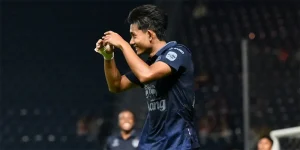
Philadelphia Union II FC
Coaching roles at Philadelphia Union II FC play an integral part in nurturing young talent. Coaches not only impart technical skills but also shape the character and mindset of the athletes under their guidance. The importance of effective coaching cannot be overstated; it is foundational to developing well-rounded players ready for future challenges.
The Role of Philadelphia Union II FC
Coaches serve as mentors who influence players’ lives both on and off the pitch. Their guidance extends beyond the tactical aspects of soccer, encompassing personal development and life skills. Coaches instill values like discipline, teamwork, and perseverance, essential qualities for success in any endeavor https://bags168.com/.
Building a trustful relationship with players is crucial. When athletes feel respected and understood, they are more likely to open up, share their concerns, and seek help when needed. This rapport promotes a positive learning environment where players can thrive and express themselves without fear of judgment.
Furthermore, mentorship is about individualization. Every player is different, with unique strengths and areas for improvement. Effective coaches recognize these differences and tailor their approaches accordingly, ensuring that each athlete receives the support necessary to reach their full potential.
Implementing Tactical Education
Philadelphia Union II FC places immense emphasis on tactical education as part of its coaching philosophy. Educating players about various formations, strategies, and match scenarios equips them with the knowledge needed to excel. Coaches create situations during training that mirror real-game scenarios, encouraging players to make quick decisions under pressure.
Tactical education extends to understanding opponents’ tendencies and adjusting one’s strategy to exploit weaknesses. Coaches help players analyze video footage, promoting a deeper understanding of the game and fostering critical thinking skills. Such education is invaluable as players transition to higher levels of competition, where tactical awareness becomes paramount.
Moreover, instilling a sense of tactical flexibility empowers players to adapt to changing circumstances during matches. This adaptability is vital in developing resilient athletes capable of thriving in unpredictable situations.
Fostering Emotional Intelligence
Coaches also play a critical role in developing players’ emotional intelligence—a crucial trait for athletic success. Recognizing emotions such as frustration, anxiety, or excitement allows players to navigate the pressures of competition effectively. Coaches guide athletes in managing these emotions, teaching techniques such as visualization, self-talk, and mindfulness.
This focus on emotional intelligence helps players develop confidence and resilience. Athletes learn how to cope with setbacks and maintain composure in high-stakes situations. For example, they may practice breathing exercises during training sessions to foster calmness before games.
Additionally, fostering emotional intelligence contributes to better team cohesion. As players grow in understanding their own emotions, they become more attuned to the feelings of their teammates. This heightened awareness creates an environment of mutual support, where players uplift one another during challenging moments.
Continuous Professional Development
To remain effective, coaches must engage in continuous professional development. Philadelphia Union II FC supports its staff in pursuing ongoing education through workshops, certifications, and collaboration with experienced coaches. Staying updated on the latest trends and advancements in coaching ensures that players receive relevant and effective training.
Moreover, this commitment to professional growth reflects positively on the entire organization. Coaches who invest in their development are better equipped to inspire their players and cultivate a successful culture. Their dedication reinforces the club’s philosophy of excellence, creating a ripple effect that extends to all levels of the organization.
Conclusion
In conclusion, the integration of international leagues and the pivotal role of coaching at Philadelphia Union II FC contribute significantly to shaping the future of soccer in the United States. Engaging with international competitions exposes players to diverse playing styles and fosters a global mindset, while knowledgeable coaching ensures their holistic development. Together, these elements create an environment where young talent can flourish, ultimately leading to the emergence of skilled athletes ready to make an impact on the world stage of soccer. As Philadelphia Union II FC continues to evolve, its unwavering commitment to player development will undoubtedly leave an indelible mark on the sport, inspiring future generations to pursue their dreams and shape the landscape of American soccer.




